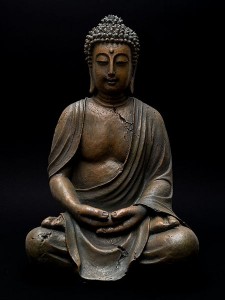“…To forgive does not necessarily mean to forget. Sometimes to forget is not wise, but to forgive is wise. And it is at times not easy. It can, in fact, be quite challenging. It will come as no surprise that one of the most difficult people to forgive can be yourself. Yet with patience and gentle determination, it can be done.
Parami (Pali), Paramita (Sanskrit): literally, perfection, or crossing over (to the other shore).
The paramis are practices that can lead one to the perfection of certain virtuous or ennobling qualities. They are practiced as a way of purifying karma and leading the practitioner on a path to enlightenment. In the Theravada tradition, the ten paramis are dana (generosity), sila (morality), nekkhamma (relinquishing), panna (wisdom), viriya (effort), khanti (patience), sacca (truthfulness), adhitthana (determination), metta (lovingkindness), upekkha (equanimity). In the Mahayana there are six paramitas: generosity, morality, patience, effort, concentration, and wisdom.
It is interesting to note that the parami of generosity comes first, before the other practices, even morality. Some commentators suggest that the list begins with the easiest practice and becomes progressively more challenging. Another view is that until one sees the interconnected nature of phenomena and has a heart open to the needs of all beings, the other paramis can remain beyond reach. With practice, the virtuous qualities become stronger and support one another. Generosity supports relinquishing, which supports morality, which supports truthfulness, which supports wisdom, which supports equanimity, and so forth.
The paramis are seen as the heart of our true nature but greed, hatred, and delusion cause them to become somewhat blurred. Practicing the paramis is said to help us see in a different, more beneficial way. His Holiness the Dalai Lama has said, “These deeds, called the perfections, constitute the essential and comprehensive path to enlightenment, combining method and wisdom.” Thus the paramis are important practices for one who seeks to become an awakened being and to end the cycle of samsara, or cyclic existence. The key point to remember is that the paramis are offered not as philosophy but as practices. To be effective, practices need to be practiced.”
~ Allen Lokos
Read full excerpt here



